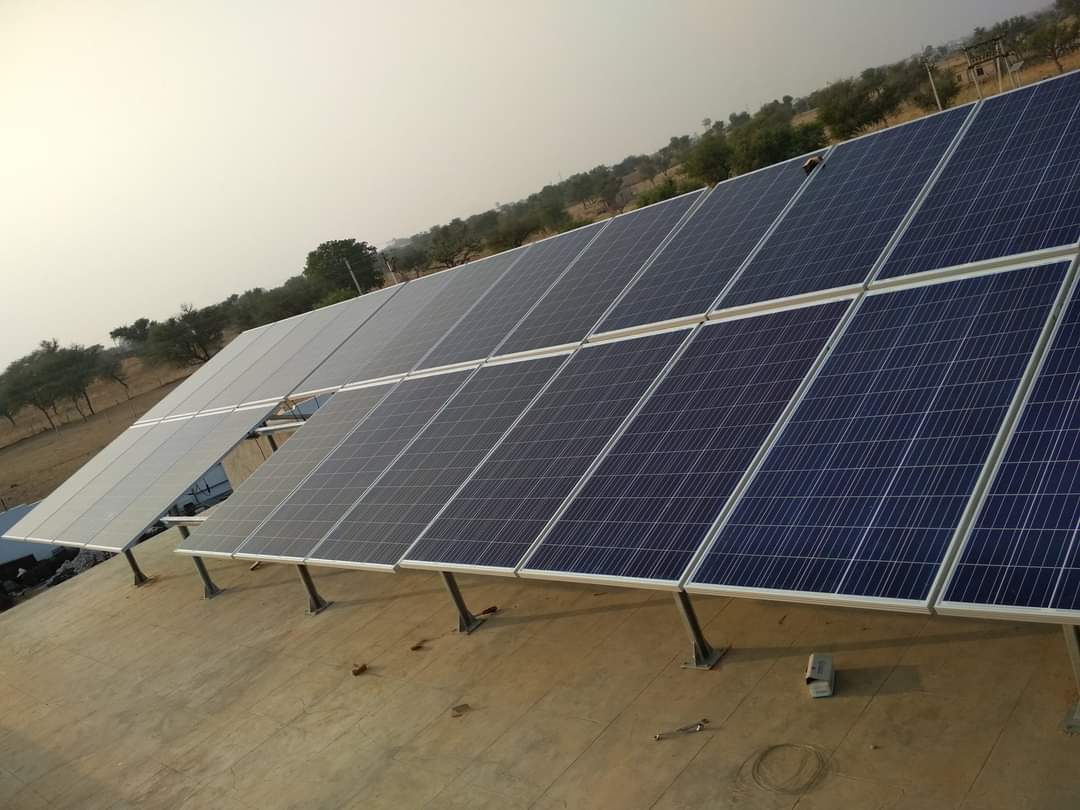
An off-grid solar PV system is a solar power system that is not connected to the electrical grid. This means that the system must generate all the electricity needed to power its appliances and lights, even at night or when there is no sunlight.
Off-grid solar systems are typically used in remote areas without access to the electrical grid, such as rural areas or islands. They can also be used by people who want to be more self-sufficient and reduce their reliance on the grid.https://en.wikipedia.org/wiki/Off-the-grid

solar panels picture
Off-grid solar systems typically consist of the following components:
- Solar panels: The solar panels give DC power.
- Inverter: The inverter converts the DC electricity from the solar panels into AC electricity that can power their load.
- Batteries: The batteries store excess electricity generated by the solar panels for use at night or when there is no sunlight.
- Charge controller: The charge controller regulates the flow of electricity from the solar panels to the batteries to prevent them from being overcharged; it also keeps the battery properly charged and controls the LCV cutoff for battery safety.https://suvastika.com/whats-pwm-solar-charge-controller/
The cost of an off-grid solar system will vary depending on the size of the system, the type of solar panels and inverter used, the solar charger controller type used for powering the Solar PV System and the cost of labour.
Here are some of the advantages of using an off-grid solar system:
- Independence from the grid: You generate your power through this Solar PV system, which is very stable but dependent on the batteries and the bank’s sizes.
- Reduced reliance on fossil fuels: You’ll reduce your carbon footprint by generating electricity from solar PV power.
- Lower energy costs: Over the long term, using an off-grid solar system is used where there is no power, so bringing the electricity from far-flung areas costs much money and maintenance. This is the cheapest power which can be installed anywhere without bringing diesel or petrol if running a diesel or petrol generator.
- Carbon Emission is reduced: adopting this system reduces carbon emissions and can get carbon credits if this is a large system.
- Lithium battery adoption: Now, the off-grid system installed with Lithium batteries has become more reliable, and the running and maintenance cost has been reduced as the Lithium battery life is four times the life of any Lead Acid battery type, whether Tubular or Gel battery. As the Lithium battery is cheaper than the Tubular Lead Acid battery.
Here are some of the disadvantages of using an off-grid solar system:
- High upfront cost: Off-grid solar systems can be expensive compared to the initial cost of a Generator, but in the long run, it will be cheaper than a Generator as the fuel cost will be compensated.
- Solar panel maintenance: Solar panels must be cleaned regularly to keep them producing at peak efficiency. Which is the cost one must consider depending on the location.
- Battery maintenance: Batteries need to be replaced periodically, which can be costly. Nowadays, Lithium battery has been a big success in Solar Off-grid system. It is a cost-effective solution as the panels have 25 years of life, and Lead Acid battery life is limited by 2 to 3 years which can go up to 10 years if Lithium is used in place of Lead Acid batteries.
- Nighttime and cloudy weather performance: Off-grid solar systems won’t produce any electricity at night or when it’s cloudy. You’ll need a backup generator or a larger battery bank to power your appliances during these times.
Considering an off-grid solar system, it’s important to weigh the pros and cons carefully to decide if it’s the right choice for you.
